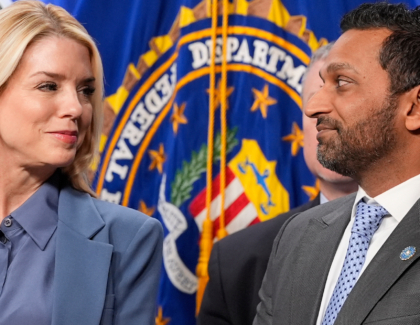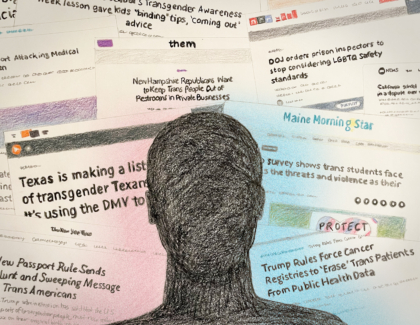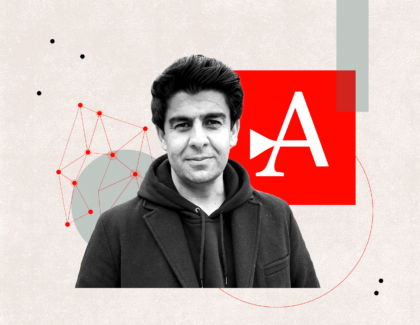Sign up for the daily CJR newsletter.
Earlier this month, an Australian court issued a decision in a long-running defamation case of Dylan Voller, who, in 2017, filed suit against a number of Australian media outlets, including Murdoch-owned The Australian and Sky News, for comments made on their Facebook pages by other Facebook users. In effect, the Australian court said the media outlets are legally responsible for the comments their readers left in response to posts, likening them to “publishers of those comments” for their participation in “facilitating, encouraging and thereby assisting the posting of comments by third-party Facebook users.” In its ruling, the court added that an attempt by the media companies to portray themselves as “passive and unwitting victims of Facebook’s functionality” was not credible: “Having taken action to secure the commercial benefit of the Facebook functionality, the appellants bear the legal consequences.”
The ruling doesn’t mark the end of the case; as David Rolph, a law professor at the University of Sydney, wrote for The Conversation, “Now it’s been established the media companies are publishers of the comments, Voller’s defamation case can start in earnest—in other words, it’s still yet to be decided whether or not the comments were in fact defamatory and what defences the media publishers might have under defamation law.” Speaking to the Sydney Morning Herald, Rolph said the ultimate outcome of Voller’s case may depend on whether the media outlets had knowledge of any defamatory comments.
Still, the ruling has sent ripples through Australian media. When it was first released, some speculated that media companies might shut down their comments, or even their entire Facebook presence, for fear of being caught up in similar lawsuits. Dave Earley, the audience editor for the Australian version of the UK-based Guardian, told the New York Times that his newspaper plans to shut off comments on any story that is controversial in order to avoid lawsuits, and limit what it posts to social media. “We won’t post stories about politicians, Indigenous issues, court decisions, anything that we feel could get a problematic reaction from readers,” he said.
The ruling has also had an impact beyond Australia: according to a report in the Wall Street Journal on Tuesday, CNN says it has shut off all public access to its Facebook pages in Australia because of the ruling. CNN reportedly asked Facebook for help in turning off comments on all of its posts in Australia, but the social network refused. Until recently, Facebook didn’t allow comments to be turned off on pages, presumably because they are a significant source of user engagement. It introduced the ability to do so in 2019, after the original Australian court decision in the Voller case, but comments have to be disabled on a per-post basis, rather than across all a publisher’s pages. In response to CNN’s request to turn off all comments, the Journal’s Benjamin Mullin reports that Facebook instead offered to “help CNN disable comments on its posts one by one.” As Earley noted, Facebook is not interested in making it easy for page publishers to shut off comments because “it’s to their benefit for there to be comments on everything.”
While the Australian ruling might be used as precedent in countries such as the United Kingdom and Canada, which are part of the British Commonwealth and share similar legal traditions, such a decision seems unlikely to affect the US. Social networks and publishers are protected from that kind of liability by Section 230, a clause in the Communications Decency Act of 1996 that says “interactive service providers” are not responsible for anything posted by their users. While that might seem like ironclad protection, Section 230 has come under fire from both Democrats and Republicans—the former because they feel social networks don’t take down enough disinformation, and the latter because they feel these services censor too much.
Here’s more on defamation and the internet:
- Defamation: In a piece about the Australian high court ruling, Rolph, the law professor, pointed out that while the decision might open the door to more such defamation lawsuits, Australia has also recently updated the law surrounding defamation, which could make it more difficult for cases like Voller’s to succeed in proving defamation. The new laws raise the bar for proving that defamation has occurred, requiring that plaintiffs show that they have suffered “serious harm” as a result of the comments. They also provide a defense for material that is considered to be “in the public interest,” which could apply to news stories.
- Malicious: For the Nieman Journalism Lab, Josh Benton wonders what the impact might be if a malicious actor—like Silicon Valley investor Peter Thiel, who financed the lawsuit that bankrupted Gawker Media—decided to pursue defamation lawsuits against other companies. “I don’t expect a ruling like this in the United States anytime soon,” Benton says. “But other countries across Europe and Asia? It’s easy to imagine — especially in less-free countries where the man who lives in the palace would be happy to open up independent media to a whole new genre of lawsuits.”
- Right and left: In July, CJR invited a wide range of legal and technology experts to do a series of online interviews about Section 230 using our Galley discussion platform. The conversations followed a number of related developments, including an attempt by Senator Amy Klobuchar to amend Section 230 in order to make social networks like Facebook liable for spreading medical disinformation about the COVID pandemic. A group of Republican members of Congress have also proposed their own “carve-outs” to the law, which they hope they can implement to reduce Section 230’s protections for certain things, including the removal of conservative speech by social platforms.
Other notable stories:
- Ozy Media’s board has started an investigation into allegations contained in Ben Smith’s recent New York Times media column, including that the company’s chief operating officer impersonated a YouTube executive during a conference call with Goldman Sachs about funding. Ozy’s COO has been placed on leave while the investigation is underway. In other Ozy-related news, Katty Kay, a former BBC anchor who recently joined the company, has resigned, calling the allegations “serious and deeply troubling.” And Ron Conway, an early investor from Silicon Valley, has renounced his investment and returned his shares, according to a report from Axios, which said this was an “extremely rare” move for a VC firm.
- The Chicago Sun-Times and Chicago Public Media, the parent company of radio station WBEZ, have confirmed discussions of a potential merger, according to a report from Chicago media columnist Robert Feder, who first reported the rumors about such talks on Wednesday. “In separate emails to their staffs, the chief executive officers of the Sun-Times and Chicago Public Media acknowledged their negotiations,” Feder wrote. Matt Moog, interim CEO of Chicago Public Media, said in his memo that the proposed merger was “an important part of our commitment to serving Chicago and ensuring local news continues to thrive.”
- YouTube said it has banned a number of users who regularly post anti-vaccination content about COVID-19, including the account belonging to Robert Kennedy, Jr.. The platform also said it will block any videos that claim vaccines don’t work or are harmful, the Washington Post reports, including COVID vaccines as well as those for measles and chickenpox. On a related note, Russia has threatened to block YouTube within its borders after the Google-owned video-hosting service banned two German-language channels managed by Russia’s state media company RT that were deleted after they published what YouTube said was misinformation about COVID-19 vaccines.
- Isha Sesay, a former CNN journalist and chief executive of OkayMedia, has co-written an op-ed on CNN as part of a campaign to bring attention to the civil war in Ethiopia’s Tigray region. Her co-authors include Liz Agbor-Tabi from Global Citizen, Masai Ujiri of the Toronto Raptors, and Gbenga Akkinagbe, an actor. The piece describes how “thousands of Ethiopians have been killed in the conflict, and there is evidence of massacres of the innocent. Two million people have been displaced, more than 350,000 are facing famine, and millions more are in need of emergency food aid.”
- Digiday has a Q&A with new Fortune magazine editor-in-chief Alyson Shontell in which the former Business Insider editor talks about whether she plans to keep the print version of the magazine, and her desire to bring more data to the newsroom. “We can put more data into the hands of the newsroom to inform them, guide them and help them pick the stories that have the most impact and that people care about,” Shontell says. “More visibility with data is important. It helps the newsroom measure success in a way where they feel what they’re writing about is sustainable.”
- Meedan, a technology nonprofit that helps build tools for journalists, is launching a new initiative called Fact Champ to address misinformation in Asian American and Pacific Islander communities, in partnership with the Annenberg Public Policy Center of the University of Pennsylvania and its FactCheck.org project; the University of Massachusetts Amherst, University of Connecticut, and Rutgers University; and AuCoDe, a start-up that uses artificial intelligence to detect and analyze disinformation.
- Former Columbia University fellow and CJR contributor Akintunde Ahmad is co-hosting Viewer Like Us, a multi-episode podcast focusing on systemic inequality within the public media system, specifically public television. The series stems from concerns raised by the podcast’s original host, Grace Lee, a Peabody-winning independent filmmaker who called out PBS’s overreliance on documentarian Ken Burns in a fall 2020 essay for the Ford Foundation.
Has America ever needed a media defender more than now? Help us by joining CJR today.







